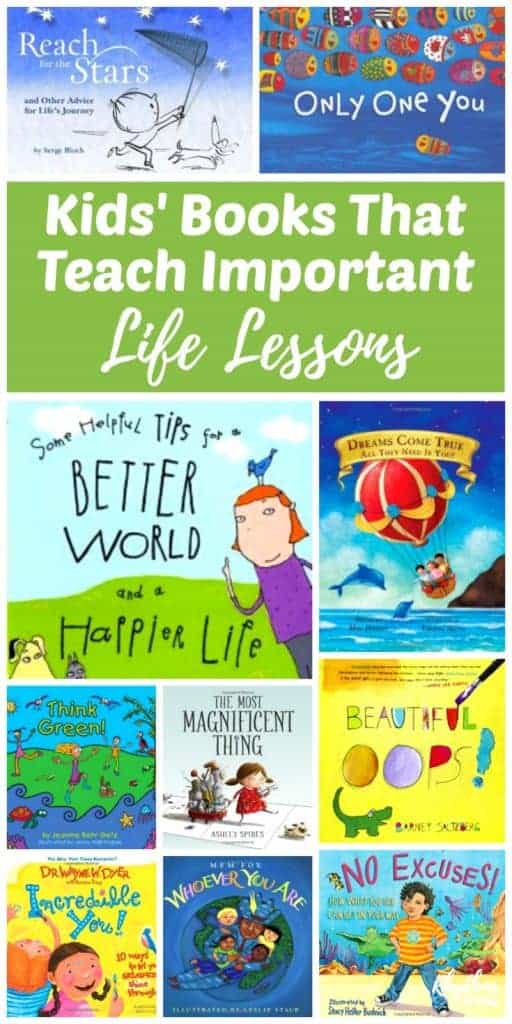Reading books is a great way to gain knowledge, particularly when it comes to parenting. However, with so many books available, choosing which ones to read can be a daunting task. To help parents select the best books, we’ve compiled a list of 10 of them that can help improve parenting skills while also teaching valuable life lessons. Examples of the books include “Simplicity Parenting” by Kim John Payne and Lisa M. Ross, which can teach parents how to create a peaceful home environment and limit children’s exposure to technology, toys and activities. Another book is “The 5 Love Languages of Children” by Gary Chapman and Ross Campbell, which can assist parents in understanding how children give and receive love.
10 Books That Will Make You a Better Parent and Teach Important Life Lessons
Reading books is a wonderful way to gain knowledge and broaden your perspective, especially when it comes to parenting. There are hundreds of books that can help you become a better parent, but with so many options available, it can be challenging to determine which ones to read.
To help you out, we have compiled a list of 10 books that every parent should read to improve their parenting skills and gain valuable life lessons.
1. “The Whole-Brain Child” by Daniel J. Siegel and Tina Payne Bryson
“The Whole-Brain Child” discusses how brain development affects children’s behavior and emotions. This book provides information on the different stages of brain development, which can help parents understand their children’s behavior better. The authors also offer practical strategies for parents to help their children build resilience and cope with everyday challenges.
2. “How to Talk So Kids Will Listen & Listen So Kids Will Talk” by Adele Faber and Elaine Mazlish
This book is perfect for parents who struggle to communicate effectively with their children. The authors provide techniques for parents to communicate without yelling or losing their temper. The book also discusses ways to build strong, healthy relationships with children.
3. “Parenting With Love and Logic” by Charles Fay and Foster W. Cline
“Parenting With Love and Logic” is a popular parenting book that helps parents raise responsible, respectful children. The book provides practical strategies for parents to teach their children how to make good choices and learn from their mistakes. The authors also discuss how parents can empower their children to take responsibility for their actions and learn how to handle conflicts with others.
4. “The 5 Love Languages of Children” by Gary Chapman and Ross Campbell
“The 5 Love Languages of Children” is an excellent book for parents to learn about the different ways children give and receive love. The authors provide practical strategies for parents to communicate love to their children in ways that their children can best understand. This book not only helps parents understand their children better, but it can also improve their relationships with their partners.
5. “No-Drama Discipline” by Daniel J. Siegel and Tina Payne Bryson
“No-Drama Discipline” provides parents with ways to discipline their children without resorting to punishment or yelling. The authors offer strategies for parents to work with their children to find solutions to problems and build stronger relationships. This book helps parents strengthen their connection with their children and teach them valuable life skills.
6. “Simplicity Parenting” by Kim John Payne and Lisa M. Ross
“Simplicity Parenting” is an excellent book for parents to learn how to simplify their lives and create a more peaceful home environment. The authors discuss the importance of limiting children’s exposure to technology, toys, and activities and how it can benefit children’s emotional and mental well-being. The book provides practical tips for parents to simplify their lives and improve their relationships with their children.
7. “Raising An Emotionally Intelligent Child” by John Gottman and Joan Declaire
“Raising An Emotionally Intelligent Child” provides parents with insight into how to raise emotionally intelligent children. The book provides information on how to recognize, understand, and regulate children’s emotions. The authors offer practical strategies for parents to teach their children how to handle difficult emotions and build strong relationships with others.
8. “Mind in the Making” by Ellen Galinsky
“Mind in the Making” is an excellent book for parents to understand the importance of building critical life skills in their children. The book discusses seven essential life skills that children need to succeed in life, including focus, self-control, perspective-taking, communication, making connections, critical thinking, and taking on challenging tasks. The authors provide practical strategies for parents to teach these skills to their children.
9. “Positive Discipline” by Jane Nelsen
“Positive Discipline” is an excellent book for parents who want to learn how to discipline their children without punishment. The book provides practical strategies for parents to teach their children responsibility, respect, and problem-solving skills. The authors emphasize the importance of building strong relationships with children and how it can positively affect their behavior.
10. “The Yes Brain” by Daniel J. Siegel and Tina Payne Bryson
“The Yes Brain” provides parents with ways to build resilient and emotionally intelligent children. The authors provide practical strategies for parents to help their children develop a “yes brain” mindset, which is open, curious, and resilient. This book helps parents cultivate their children’s capacity for creativity, empathy, and insight.
In conclusion, reading books is a fantastic way for parents to gain knowledge and improve their parenting skills. The ten books mentioned in this article are excellent resources for parents to learn practical strategies to build strong relationships with their children, teach valuable life skills, and raise emotionally intelligent and resilient children.
